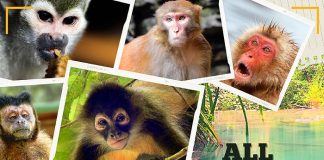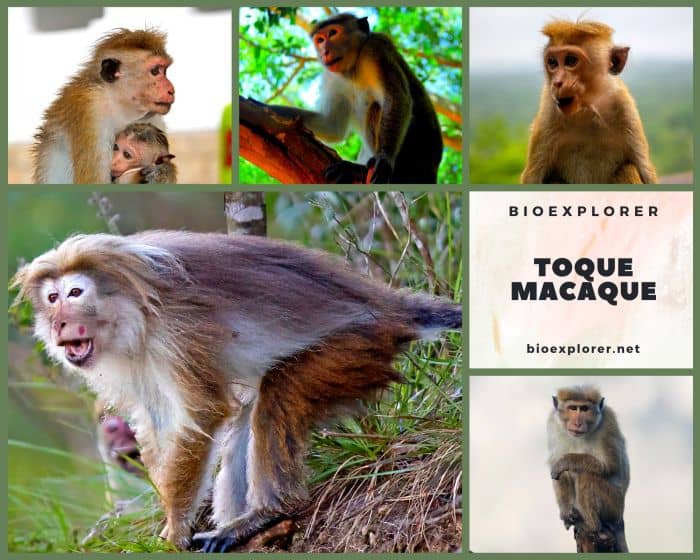
| Animalia | Primates | Cercopithecidae | Macaca | Macaca sinica |
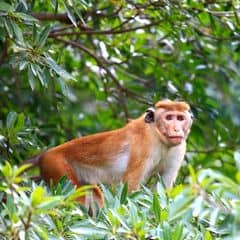

- Common Name: Toque Macaque
- Taxonomy Classification Year: 1771
- Monkey Size: 36.7 to 49.5 cm (14.45 to 19.49 in)
- Skin Color(s): Golden or orange-brown to yellowish or olive
- Habitat: Forest, scrub forest
- Diet: Omnivorous
- Native Countries: Sri Lanka
Toque Macaque Distribution
Toque Macaque Characteristics
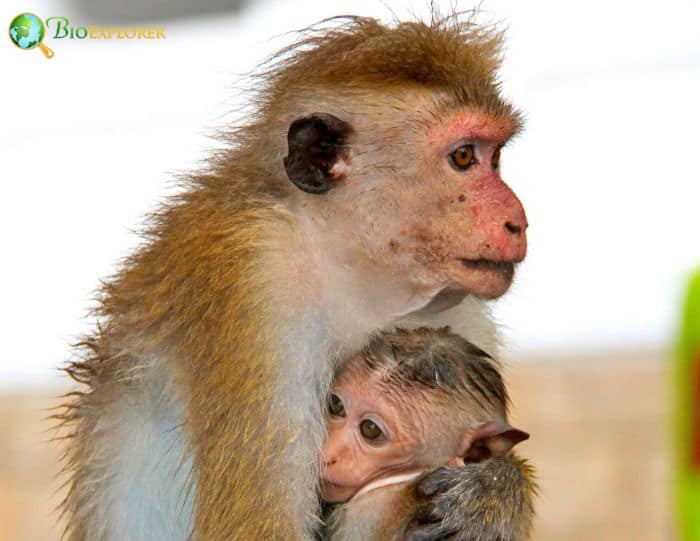
The toque macaque[1] (Macaca sinica) is a red-brown Old World monkey endemic to Sri Lanka, known as the rilewa or rilawa.
- The fur that covers the upper part of toque macaques varies in color depending on the subspecies.
- Coloration generally ranges from golden or orange-brown to yellowish or olive. Their furry undersides are white, and tufts of white fur protrude from the monkeys’ large, scalloped, prominent black ears.
- The long tail is dark above and pale white below. An elongated, hairless muzzle gives way to a prominent chin; the narrow lips are black.
- With age, the female species’ face becomes pink (hues range from pale to light, almost red). This pink coloration is particularly evident in the dry-zone toque macaques.
- The males have dull brown, hairless faces. One of the toque macaques’ most distinctive features (if not the most striking) is their scruffy, unkempt hairstyle.
- Nature has created a blatant hair tangle on every monkey’s head. As a result, this decorative lace has been likened to a brimless cap (referred to as a “toque“).
- Like their fur, the coloration and exaggeration of their spiral hairdo differ depending on the subspecies and region in which these monkeys live.
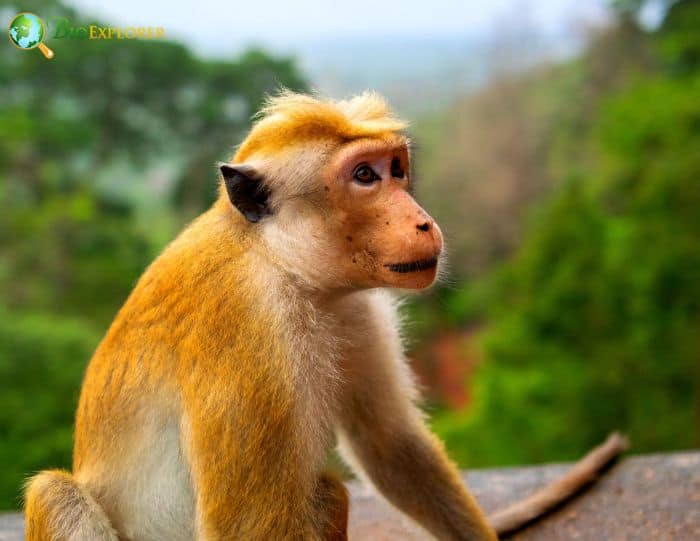
What Do Toque Macaques Eat?
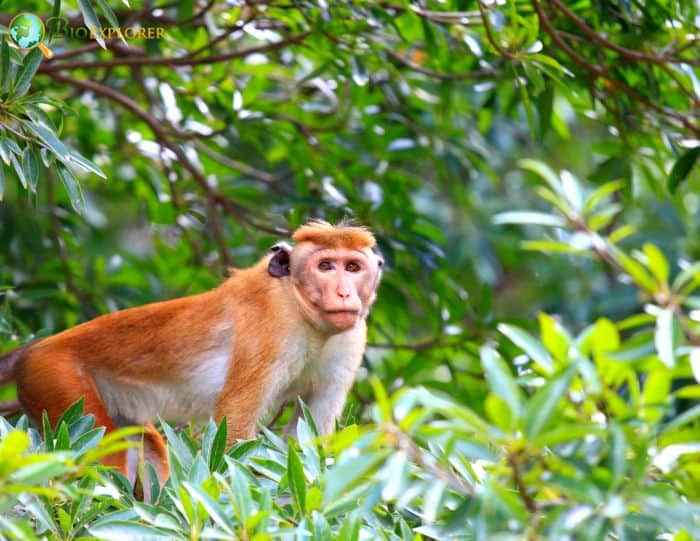
The Toque Macaque diet includes[¶]:
- Golden Shower (Cassia fistula).
- Clustertree (Ficus racemosa)
- Indian Ash tree (Lannea coromandelica).
- Tamarind (Tamarindus indica)
- Lac Tree (Schleichera oleosa).
- Chastetree (Vitex)
- Duhat (Syzygium cumini)
- Mahua (Madhuca longifolia)
- Roxburgh’s Cassia (Cassia roxburghii).
- Indian Banyan (Ficus benghalensis).
- Hazel Sterculia (Sterculia foetida).
- Horn Of Plenty (Datura metel).
- Jackfruit (Artocarpus heterophyllus)
- Coconut Palm (Cocos nucifera).
Toque Macaque Facts
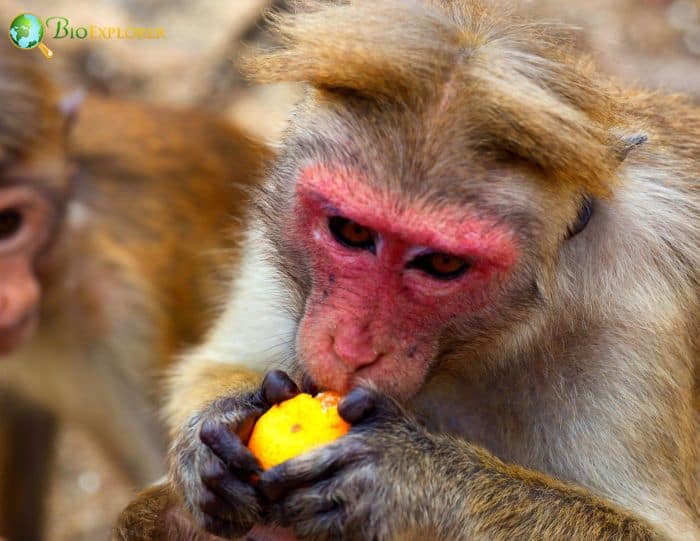
- Its common name refers to the strand of hair on its head that resembles a brimless hat.
- Toque macaques are excellent swimmers and dive underwater to search for their favorite plants.
- They tend to make friends with other species. For example, it is typical for macaques living near humans to become friends with and groom the family pet.
- When sensing danger, these monkeys use both hands to stuff food into their cheek pouches for later eating and flee to nearby trees for safety.
- Toque macaques are social animals living in family groups of multiple males and females called “troops“. Troop sizes range from 8-40 people, with an average troop size of 21.
Suggested Reading: All Kinds of Monkeys
Cite This Page
APA7MLA8Chicago
BioExplorer.net. (2024, December 26). Toque Macaque. Bio Explorer. https://www.bioexplorer.net/animals/mammals/monkeys/toque-macaque/.
BioExplorer.net. "Toque Macaque" Bio Explorer, 26 December 2024, https://www.bioexplorer.net/animals/mammals/monkeys/toque-macaque/.
BioExplorer.net. "Toque Macaque" Bio Explorer, December 26 2024. https://www.bioexplorer.net/animals/mammals/monkeys/toque-macaque/.
















